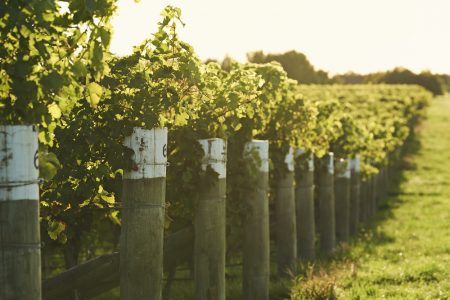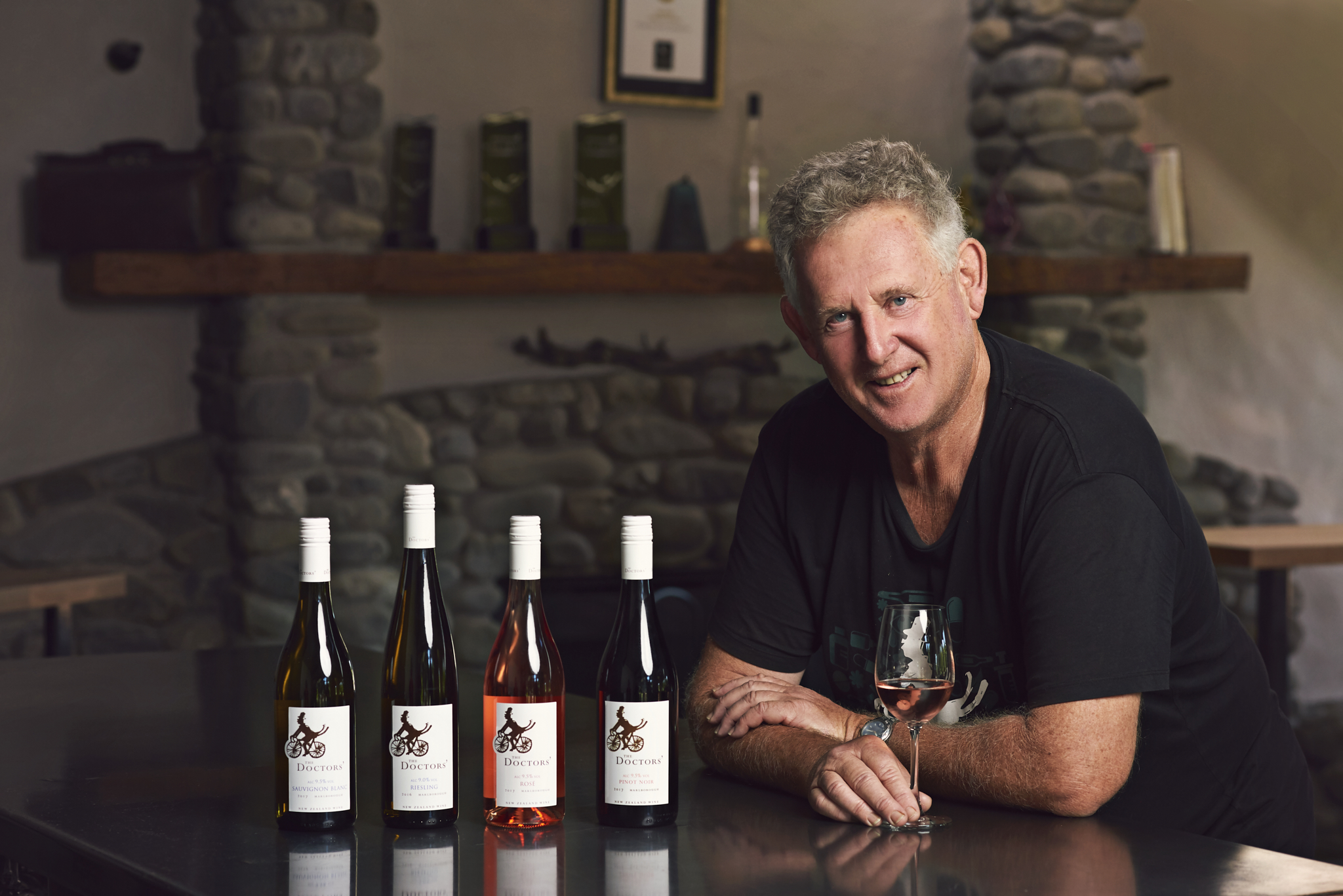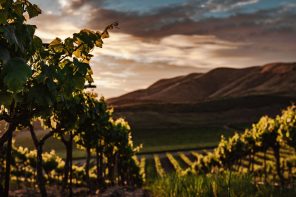Dr John Forrest graduated from Otago University in 1982 with a PhD in neuroscience, not your typical introduction to the world of winemaking. His science career took him to San Diego, Adelaide and ultimately Palmerston North, where his wife finally convinced him to pursue his true passion – wine.
“While I was in university, I had a taste of an incredible Gewürztraminer and from that moment, I was hooked,” he said. “The complexity and balance of flavours fascinated me.”
In 1988 Forrest returned to Marlborough, a section in the Wairau Valley. Marlborough’s location in the rain shadow of the Southern Alps means that it is routinely New Zealand’s sunniest and driest place, allowing for wonderful ripening of grapes.
Forrest is self-taught. “Winemaking is very much about trial and error and when I started 30 years ago, the industry was still quite small so I was fortunate enough to have the opportunity to make mistakes and learn from them.”
A risk-taker and innovator, Forrest has his own unique winemaking process – but, he admits, so does everyone else.
“For me, winemaking combines my exuberant personality and scientist’s love of experimentation with a continuous quest to capture the best the land, the vines and vintage has to offer,” he said. “Every winemaker puts their own touch on their wine.”
After 30 years in the industry, Forrest has established himself as a leader in naturally produced lighter in alcohol wines. Forrest’s The Doctors’ range of lighter in alcohol wine was stocked at Marks & Spencer in the United Kingdom earlier this year under the retailer’s own-brand wines, in time for the UK summer. A significant export achievement for the New Zealand lighter wine category, this landmark listing follows on from award wins at prestigious wine competitions such as the Melbourne International Wine show where the Doctors’ lighter in alcohol Rose and Sauvignon Blanc won gold and silver respectively, up against fierce competition from full strength wines.
“This has been something we’ve been working on for many years and slowly perfecting it,” he explained. “The technique involves removing some of the vines’ leaves at key stages during the growing season. This leads to less sugar – which will be turned into alcohol when the grape juice is fermented to make wine – but doesn’t interfere with the build-up of the other key components in the grapes that give the wine its flavour and acidity.”
Forrest Wines is one of 18 leading New Zealand premium wine companies taking part in New Zealand Lighter Wines, a seven-year research and development initiative led by New Zealand Winegrowers, and co-funded by MPI. New Zealand Lighter Wines is focused on the natural production of lighter in alcohol wines (defined as wines containing less than 10 percent alcohol by volume). The challenge is not simply to produce lighter wines that are high quality, but to naturally lower the alcohol content without compromising the things for which New Zealand is famous.
As part of this programme, New Zealand winemakers have developed innovative sustainable viticultural techniques that can help slow the natural grape ripening process in the vineyard yet still produce full-flavoured, varietally expressive wines with less alcohol than conventional wines.
Through the New Zealand Lighter Wines initiative, Forrest says they have made “startling progress” for the wine industry and the lighter in alcohol wine category.
“The NZ Lighter Wines programme made the conscious decision to work on Lighter Sauvignon Blanc so that’s where we started – the technique made huge inroads with this varietal and other lighter whites followed, including The Doctors’ Pinot Gris and Rose.”
“We’re well ahead of conventional achievements – lighter wines can now win medals in open class competitions up against standard wines as evidenced by the success The Doctors’ range has enjoyed,” he said.
Forrest has been involved in a range of initiatives during his time in the wine industry. He served ten years on the New Zealand Winegrowers Research Board, as well as founding and being current director of Botryzen Biotech Company, producing the world’s first natural botrytocide. His latest project is part of Pure Marlborough, aims to ensure the reputation and standards of wine from the region.
“The Kiwi wine industry is very open, innovative and we’re free to be creative,” he explained. “However, we can learn a lot from hard learnt lessons in the old world of wine. Things like greater respect for the land and its stewardship, a focus on quality and balanced crop leaves and some traditional winemaking techniques that enhance the structure and longevity of our wines.”
So how does Forrest rate his own wines?
“Fresh, flavourful and pristine, our wines express both what the Marlborough region has to offer. New grape varieties, alternative winemaking techniques and select parcels of fruit all qualify to create very special wines.”







